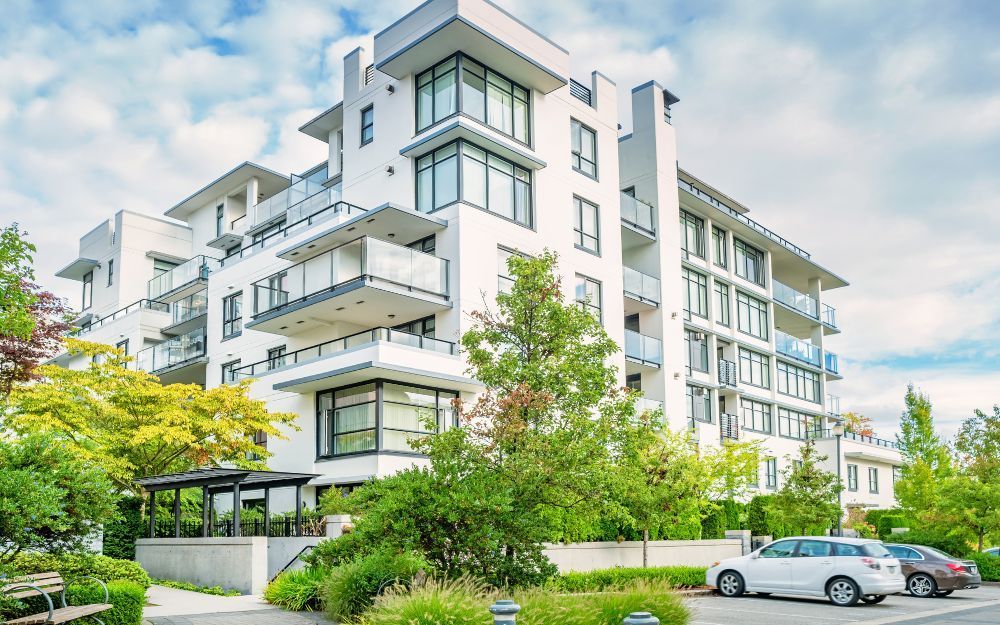
Traveling in an RV can be an exhilarating experience, offering the freedom to explore diverse landscapes and create unforgettable memories. However, the open road also comes with its risks, including the possibility of accidents. If you find yourself in a situation where you crash your RV out of state, understanding the implications and policies, particularly in Oklahoma, is crucial. This article delves into the steps to take after an accident, the legal ramifications, and how insurance plays a role in your recovery.
Immediate Steps to Take After an RV Accident
Ensure Safety First
The first priority after any accident is safety. If the RV is drivable, move it to the side of the road to avoid further accidents. If there are injuries, call 911 immediately. Ensure that everyone involved is safe and that emergency services are on their way.
While waiting for help, turn on your hazard lights and set up flares or warning triangles if you have them. This will alert other drivers to the situation and help prevent additional accidents. It’s also wise to stay inside your RV if it is safe to do so, as exiting the vehicle can expose you to further danger from oncoming traffic. If you must leave the RV, do so cautiously and make sure to keep a safe distance from the road.
Document the Scene
Once safety is assured, it’s important to document the accident scene. Take photos of the RV, any other vehicles involved, and the surrounding area. Note the time, location, and weather conditions. This documentation can be vital for insurance claims and any potential legal issues that may arise.
Additionally, gather information from the other parties involved, including names, contact information, insurance details, and license plate numbers. If there are witnesses, obtain their contact information as well. Consider writing down a detailed account of the events leading up to the accident while they are still fresh in your mind. This can help clarify the circumstances later when dealing with insurance companies or legal matters. Don’t forget to check if your RV has a dashcam; footage from it can provide invaluable evidence.
Contact Law Enforcement
In many states, including Oklahoma, it is required to report an accident to law enforcement if there are injuries or significant property damage. The police will create an accident report, which can be crucial for insurance claims and legal processes. Make sure to obtain a copy of this report for your records.
While waiting for law enforcement to arrive, it’s advisable to avoid discussing the accident with the other parties involved beyond basic exchanges of information. Any statements made at the scene can be misinterpreted or used against you later. Instead, focus on remaining calm and collected, as this will help you communicate effectively with the police and ensure that all necessary details are accurately conveyed in the official report. Remember, the police are there to assist you, and providing them with a clear and concise account of what happened will aid in their investigation and help expedite the process of resolving the situation.
Understanding Oklahoma's Insurance Requirements
Minimum Coverage Requirements
Oklahoma law mandates that all drivers carry a minimum level of liability insurance. This includes:
- $25,000 for bodily injury per person
- $50,000 for total bodily injury per accident
- $25,000 for property damage
These minimums are designed to protect other drivers in the event of an accident. However, they may not be sufficient to cover all costs associated with an RV accident, especially if injuries or damages are extensive. For instance, medical expenses can quickly escalate, particularly if multiple parties are involved or if long-term care is required. Moreover, the property damage limit may not adequately cover the costs of damage to other vehicles or property, especially in urban areas where repair costs can be significantly higher.
Additional Coverage Options
For RV owners, it’s advisable to consider additional coverage options. Comprehensive and collision coverage can help cover repairs to your RV and personal belongings inside. Additionally, uninsured/underinsured motorist coverage can protect you if the other party lacks adequate insurance. This type of coverage is particularly important in Oklahoma, where statistics indicate a higher percentage of uninsured drivers compared to the national average. Without this protection, you could find yourself facing significant out-of-pocket expenses in the event of an accident.
Understanding your policy and discussing your needs with an insurance agent can help ensure you have adequate coverage while traveling out of state. It's also beneficial to review your policy periodically, especially if you make modifications to your RV or if you plan to take extended trips. Many insurers offer specialized RV insurance packages that include coverage for roadside assistance, personal liability, and even vacation liability, which can provide peace of mind while you enjoy the open road. Additionally, some policies may offer discounts for safe driving records or for bundling multiple types of insurance, which can further enhance your financial protection.
Legal Implications of Crashing Your RV Out of State
Jurisdiction and Liability
When an RV accident occurs out of state, jurisdiction can become a complicated issue. Generally, the laws of the state where the accident occurred will apply. This means that if the accident happens in Oklahoma, Oklahoma laws regarding liability and negligence will govern the situation.
In many cases, liability is determined by the concept of negligence. If you are found to be at fault for the accident, you may be liable for damages incurred by the other party. This can include medical expenses, property damage, and even lost wages. Additionally, punitive damages may be sought in cases of gross negligence, which can significantly increase the financial repercussions of the accident. Understanding the nuances of state laws is crucial, as some states may have caps on damages or specific statutes that could affect your case.
Filing a Claim in Another State
Filing an insurance claim after an accident in another state can be a bit more complex than doing so in your home state. It’s essential to contact your insurance company as soon as possible after the accident, regardless of where it occurred.
Your insurance agent can help guide you through the claims process, which may involve working with local authorities and insurance companies in the state where the accident took place. Keep in mind that different states may have different regulations and processes, so staying informed is key. Furthermore, it’s advisable to document everything meticulously, including photographs of the accident scene, witness statements, and any police reports. This documentation can prove invaluable in supporting your claim and ensuring that you receive the compensation you are entitled to. Additionally, some states have specific time limits for filing claims, known as statutes of limitations, which can vary significantly from your home state, adding another layer of urgency to the situation.
What to Expect from Your Insurance Company
Claims Process Overview
Once you’ve reported the accident to your insurance company, they will initiate the claims process. This typically involves an investigation, which may include reviewing the police report, speaking with witnesses, and assessing the damage to your RV and any other vehicles involved. The claims adjuster assigned to your case will play a pivotal role in this process, acting as the liaison between you and the insurance company. They will gather all pertinent information and evaluate the circumstances surrounding the accident to ensure a fair assessment.
It’s crucial to provide your insurance company with all the necessary documentation, including photos, witness statements, and the police report. The more information you provide, the smoother the claims process will be. Additionally, keep a detailed record of all communications with your insurance company, including dates, times, and the names of the representatives you speak with. This can be invaluable if any disputes arise later in the process, as it helps establish a clear timeline and understanding of your claim.
Potential Outcomes
After the investigation, your insurance company will determine the outcome of your claim. If you are found to be at fault, your liability coverage will cover the damages to the other party. However, if you have collision coverage, it may also cover the repairs to your RV, minus any deductible. Understanding the specifics of your policy is essential, as coverage can vary significantly between providers and plans. Familiarizing yourself with your policy details beforehand can help you anticipate potential costs and outcomes.
If the other party is at fault, their insurance should cover your damages. However, navigating this process can sometimes be challenging, especially if the other party is underinsured or uninsured. In such cases, your own uninsured motorist coverage may come into play, providing you with additional protection. It’s also worth noting that the timeline for receiving compensation can vary, depending on the complexity of the claim and the responsiveness of the involved parties. Patience and persistence may be required as you work through the necessary steps to ensure you receive the compensation you deserve.
Dealing with Out-of-State Legal Issues
Consulting an Attorney
If the accident results in significant damages or injuries, it may be wise to consult an attorney who specializes in auto accidents. They can provide guidance on your rights and responsibilities, as well as help navigate any legal proceedings that may arise. An experienced attorney can assess the specifics of your case, including the nature of the accident, the extent of damages, and the applicable laws in the state where the incident occurred.
Having legal representation can be particularly beneficial if you are dealing with out-of-state laws and regulations, as they can help ensure that you are treated fairly and that your interests are protected. An attorney can also assist in gathering evidence, such as police reports and witness statements, which can be crucial in building a strong case. Furthermore, they can negotiate with insurance companies on your behalf, ensuring that you receive the compensation you deserve without being taken advantage of during a vulnerable time.
Understanding Comparative Negligence
Oklahoma follows a "modified comparative negligence" rule, meaning that if you are found to be partially at fault for the accident, your compensation may be reduced by your percentage of fault. For example, if you are deemed to be 20% at fault, your compensation will be reduced by that amount. This system encourages all parties to drive responsibly and can influence how claims are filed and settled.
This can complicate claims, especially in multi-car accidents. Understanding how comparative negligence works in Oklahoma can help you prepare for potential outcomes in your case. It’s essential to gather as much evidence as possible to support your claim and demonstrate the other party's liability. This may include photographs of the accident scene, medical records, and expert testimonies. Additionally, being aware of the time limits for filing a claim in Oklahoma, known as the statute of limitations, is crucial to ensure that you do not miss your opportunity for compensation. Engaging with a knowledgeable attorney can provide clarity on these aspects, allowing you to navigate the complexities of your case with confidence.
Insurance Considerations for RV Owners
Specialized RV Insurance
Unlike standard vehicle insurance, RV insurance is tailored to the unique needs of RV owners. It often includes coverage for personal belongings inside the RV, emergency expenses, and even vacation liability coverage. Given the potential for accidents, having specialized RV insurance can provide peace of mind while on the road. Additionally, many policies offer coverage for roadside assistance, which can be invaluable when traveling in remote areas where help may not be readily available. This feature can include services like towing, tire changes, and even fuel delivery, ensuring that you can get back on your journey with minimal disruption.
When selecting an insurance policy, consider factors such as the value of your RV, how often you travel, and the types of coverage that best suit your needs. Comparing quotes from different providers can also help you find the best policy at a competitive rate. It's also wise to review the policy's exclusions and limits carefully, as some may not cover certain types of damage or may have restrictions based on the RV's age or condition. Engaging with an insurance agent who specializes in RVs can provide insights into the nuances of coverage options, helping you make an informed decision that aligns with your travel lifestyle.
Maintaining Your RV
Regular maintenance is crucial for preventing accidents. Ensure that your RV is in good condition by routinely checking the brakes, tires, lights, and other essential systems. Keeping your RV well-maintained can help minimize the risk of accidents and ensure a safer travel experience. Additionally, seasonal checks are important; for instance, winterizing your RV can prevent damage from freezing temperatures, while summer inspections can help address issues related to heat and humidity. It's also beneficial to keep a maintenance log to track repairs and services, which can be useful for both your own records and when discussing your RV's condition with a mechanic or insurance provider.
Moreover, investing in quality parts and accessories can significantly enhance your RV's performance and longevity. From upgrading to high-quality tires designed for long-distance travel to installing a reliable braking system, these enhancements can improve safety and driving experience. Regularly cleaning and inspecting the roof and seals can prevent leaks and water damage, which are common issues that can lead to costly repairs. By taking a proactive approach to maintenance, RV owners can enjoy their adventures with confidence, knowing that their vehicle is in top shape.
Conclusion: Preparing for the Unexpected
While the open road offers adventure and freedom, it also comes with risks. Understanding what happens if you crash your RV out of state, especially in Oklahoma, is vital for ensuring your safety and protecting your interests. By knowing the immediate steps to take after an accident, understanding insurance requirements, and being aware of the legal implications, you can navigate the aftermath of an RV accident more effectively.
Ultimately, preparation is key. Investing in the right insurance coverage, maintaining your RV, and being informed about state laws can help you enjoy your travels with greater confidence. Whether you’re embarking on a weekend getaway or a cross-country journey, being prepared for the unexpected can make all the difference.







